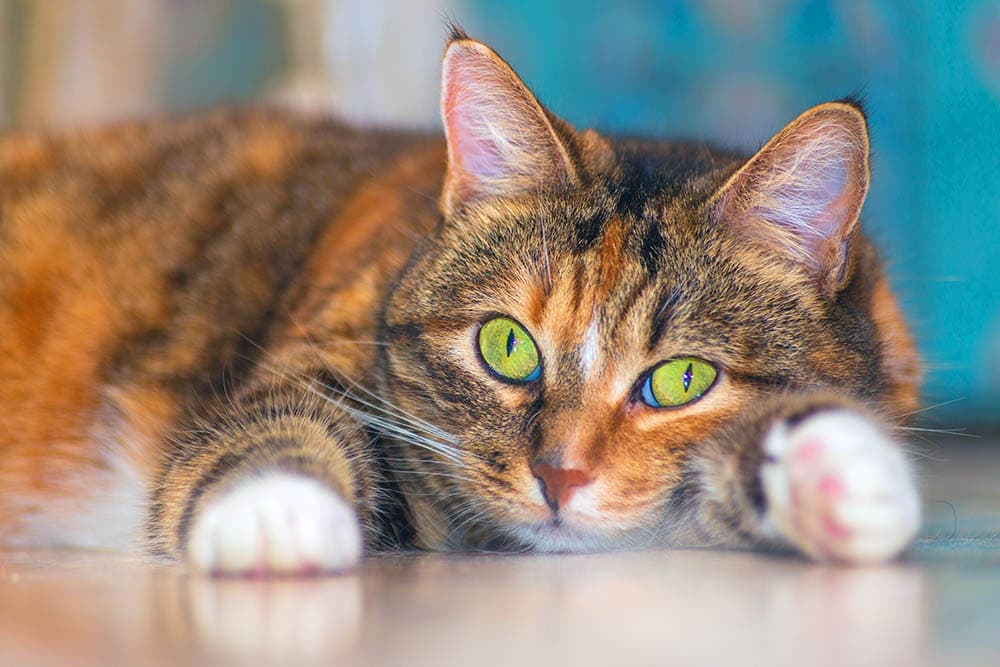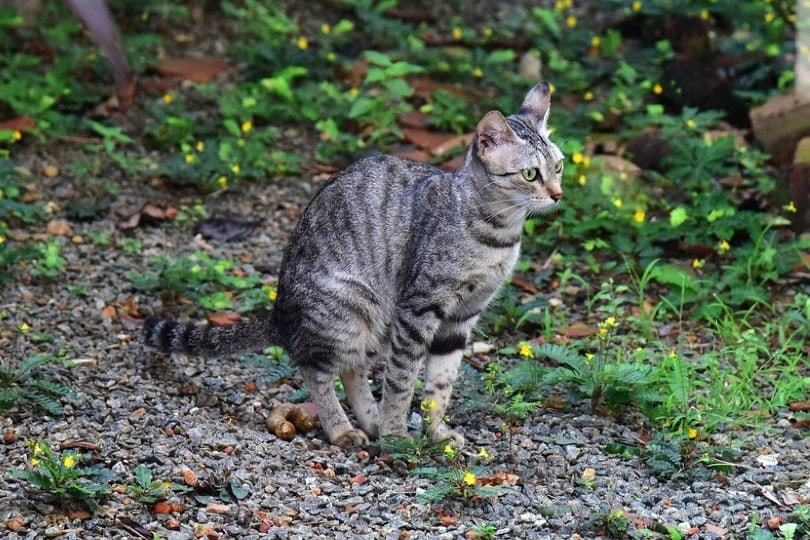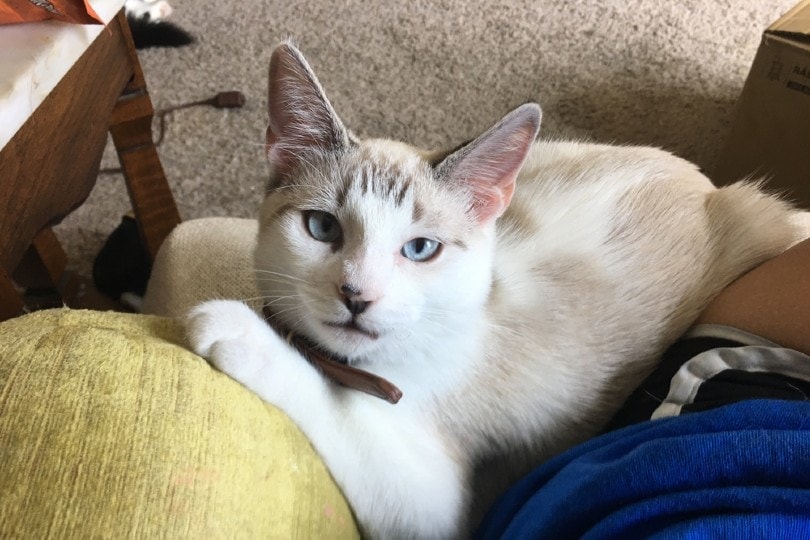Are Hydrangeas Poisonous to Cats? Vet-Reviewed Safety Facts
Updated on
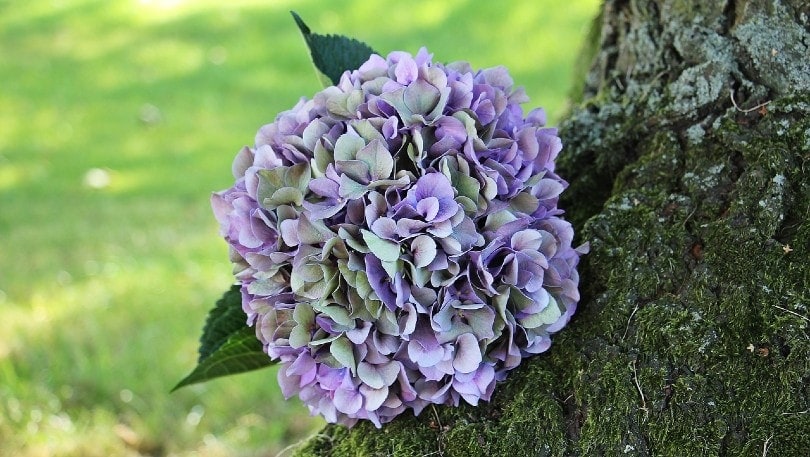
Hydrangeas are a garden showstopper, and it’s easy to see why. These flowers are a great way to add color to your garden with big balls of blooms that come in blue, pink, and white (sometimes even on the same bush!). But if you have a feline friend, you might want to take care because hydrangeas are poisonous to cats.
Hydrangeas aren’t always a cause for concern though, as there is large variability in the toxicity of individual plants. Although cats can suffer from hydrangea poisoning, it isn’t very common. Cats need to ingest a significant amount to show signs, and most cats won’t show much interest in the plants. You should be much more cautious if your cat has a history of plant-eating as all parts of the plant are toxic, flowers, buds, and leaves.
Causes of Hydrangea Poisoning
Hydrangeas contain a compound called hydrangin. It is present throughout the hydrangea, but especially in new growths such as flowers or new leaves. Hydrangin is a type of chemical called a cyanogenic glycoside. That means that on its own, hydrangin isn’t that dangerous, and it doesn’t hurt the plant at all. But when an animal ingests it (including humans, dogs, and cats), it is transformed during the digestion process. The harmless hydrangin becomes toxic cyanide.

Signs and Treatment
Luckily, the hydrangin found in hydrangeas isn’t super concentrated. If your cat takes a nibble or two, you likely won’t see any signs. However, if your cat eats a considerable amount, especially flowers or new leaves, you might see signs of poisoning. This is especially true in kittens or smaller cats because their smaller weight lowers the toxic dose.
In the dose found in hydrangeas, poisoning usually causes stomach upsets like vomiting and diarrhea. This will usually start about half an hour after the plant is ingested. It can also cause contact irritation of the skin and eyes. In rare cases, poisoning might cause lethargy and confusion, bright red mucous membranes, and breathing difficulties. Hydrangea poisoning is unlikely to cause long-term or life-threatening signs in a healthy cat.
If you suspect your cat is suffering from hydrangea poisoning, you can take your cat to a vet. Vets can monitor your cat and rule out more severe causes of poisoning. In some cases, medicines might be administered to reduce signs.
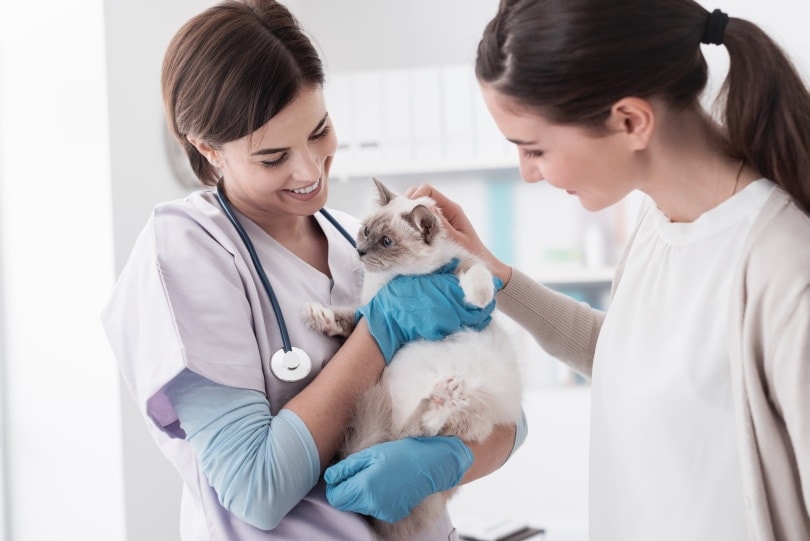
How to Avoid Hydrangea Poisoning for Your Cat
Even though hydrangea poisoning won’t likely kill your cat, it still isn’t pleasant. Some precautions can be taken to avoid poisoning if your cat is plant-curious.
- Beware of floral arrangements containing hydrangeas and other dangerous plants, such as lillies. Some cats are uninterested in outdoor plants but curious about floral displays that appear inside their home.
- Place nets over plants or use non-toxic deterrent sprays to discourage cats from munching.
- Chase cats away with ultrasonic noise emitters or motion-activated sprinklers. If you choose to use a noise emitter, make sure that it won’t bother your cat inside the house.
- If all else fails, you can also replace hydrangeas with cat-safe plants, like roses, camellias, or zinnias.
Last Thoughts
The flowers we put in our gardens and around our houses can be pretty, but that doesn’t mean they are safe. Hydrangeas are somewhere in the middle of the plant safety scale for cats. Hydrangea poisoning is rare and not usually life threatening, but precautions can help keep your cat safe and healthy.
Featured Image Credit: S. Hermann & F. Richter, Pixabay


